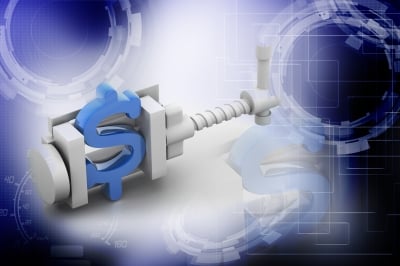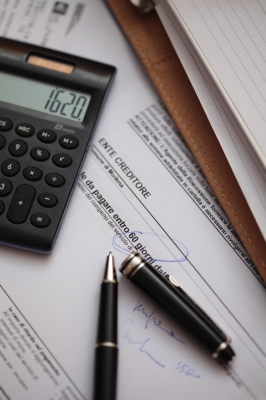An IRS wage garnishment is an extremely difficult process to deal with. The federal government has given the Internal Revenue Service the authority to garnish employee earnings, and the agency often resorts to this action in severe cases of back tax debt. Once the IRS begins garnishing your wages, it will generally continue to do so until the entire tax bill is paid in full, no matter how long that takes. Despite its authority, the IRS has to follow certain wage garnishment guidelines.
IRS Wage Garnishment Guide
Common IRS Tax Penalties for Small Business Owners
When the tax deadline approaches, many business owners may be worrying about the IRS fines and penalties they could face. Some of these fees are associated with the IRS filing process itself, but others may be assessed after an IRS review of a completed return. What are some of these fines? How can an entrepreneur avoid these penalties? Here are some small business tax suggestions for escaping the most common IRS penalties.
What is the IRS 10-Year Collection Statute on Tax Debt?
The Internal Revenue Service has sweeping power to collect back taxes from individuals who are delinquent on their accounts. The agency has the authority to place liens on property, seize assets, and freeze bank accounts, all in an attempt to collect back payments. However, there are limits to what the IRS can do to collect due taxes. For example, the agency only has a limited amount of time to pursue collections. There is a limit on IRS tax collections and learning about that timeframe can help you decide how to approach making payments on your account.
How Can You Remove an IRS Bank Levy?
An IRS bank levy is the worst nightmare of many U.S. taxpayers. This action gives the IRS unprecedented access to your personal bank account, putting your very financial security at risk. Even worse, once the levy is imposed, it can be extremely difficult to get it removed. Despite these challenges, though, it is possible to remove an IRS bank levy.
Can the IRS Seize Your Assets?
Most taxpayers have heard horror stories about the IRS taking possession of someone's assets and they may fear that this could happen to them. While it's true that the IRS has the authority to seize individual assets, this only happens in situations where a taxpayer becomes seriously delinquent on their account and doesn't take any steps to clear up their outstanding tax balance. In these cases, the agency may issue a tax lien or a tax levy. How can you prevent the IRS from seizing your assets?
Advantages and Disadvantages of IRS Installment Plans
Many taxpayers who owe large amounts of back taxes to the IRS set up IRS installment plans in an attempt to clear up their accounts. These installment plans can be a convenient way to pay off back taxes without putting an unnecessary strain on an individual's budget. While an IRS payment plan may seem like a good idea in theory, there are a few situations where signing up for this type of plan may not be the best solution. Here are some of the advantages and disadvantages of IRS installment plans.
Common Questions about IRS Wage Garnishment
Have you had your wages garnished by the IRS? If so, you may have several questions about IRS wage garnishment such as how long the process will last and what you can do to resolve it. The prospect of the IRS garnishing your wages can be extremely unsettling, but if you're facing this situation, you can ease some of your concerns by learning what's involved.
Common Questions about IRS Tax and Bank Levies
Are you currently facing an IRS tax levy? If so, you might be concerned about what the levy will do to your credit, your assets, and your finances. While an IRS tax levy can be frightening, there are ways that taxpayers can try to seek some relief from this action. The key to resolving a tax levy is getting as much information as you can about what to expect during the procedure. Here are a few common questions about IRS tax and bank levies.
Can the IRS Collect on a 10-Year-Old Tax Debt?
If you have a tax debt with the IRS that is at least ten years old, you might think that the agency doesn't have the ability to pursue you for collection. While most taxpayers receive a reprieve on their tax debt after ten years, in some cases the IRS still has the ability to collect on an old debt. It's important for taxpayers to find out if their accounts are exempt from the ten-year rule so that they can prepare themselves if the IRS decides to pursue collection.
What is the Statute of Limitations on an IRS Tax Debt?
Taxpayers who are in debt to the IRS may not be aware that the agency is restricted to a certain amount of time to collect on the debt. This means that some individuals who are close to the end of the statute of limitations may only have a short amount of time left to make payments on their accounts. After the statute of limitations runs out, even the IRS cannot legally pursue back tax payments from individual taxpayers.
SUBSCRIBE VIA EMAIL
POSTS BY TOPIC
- Tax Tips and Help (285)
- IRS Collections (121)
- IRS Audit (72)
- Tax Credits and Deductions (70)
- Tax Resolution (62)
- Business Taxes (54)
- Back Taxes (48)
- Wage Garnishment (21)
- Tax Levies (19)
- IRS Payment Plans (15)
- Tax Liens (14)
- Offer in Compromise (9)
- Unfiled Tax Returns (9)
- IRS Tax Attorneys (7)
- Asset Seizure (6)
- Tax Evasion (6)
- Criminal Tax Defense (4)
- Innocent Spouse Relief (4)
- Alimony (1)











